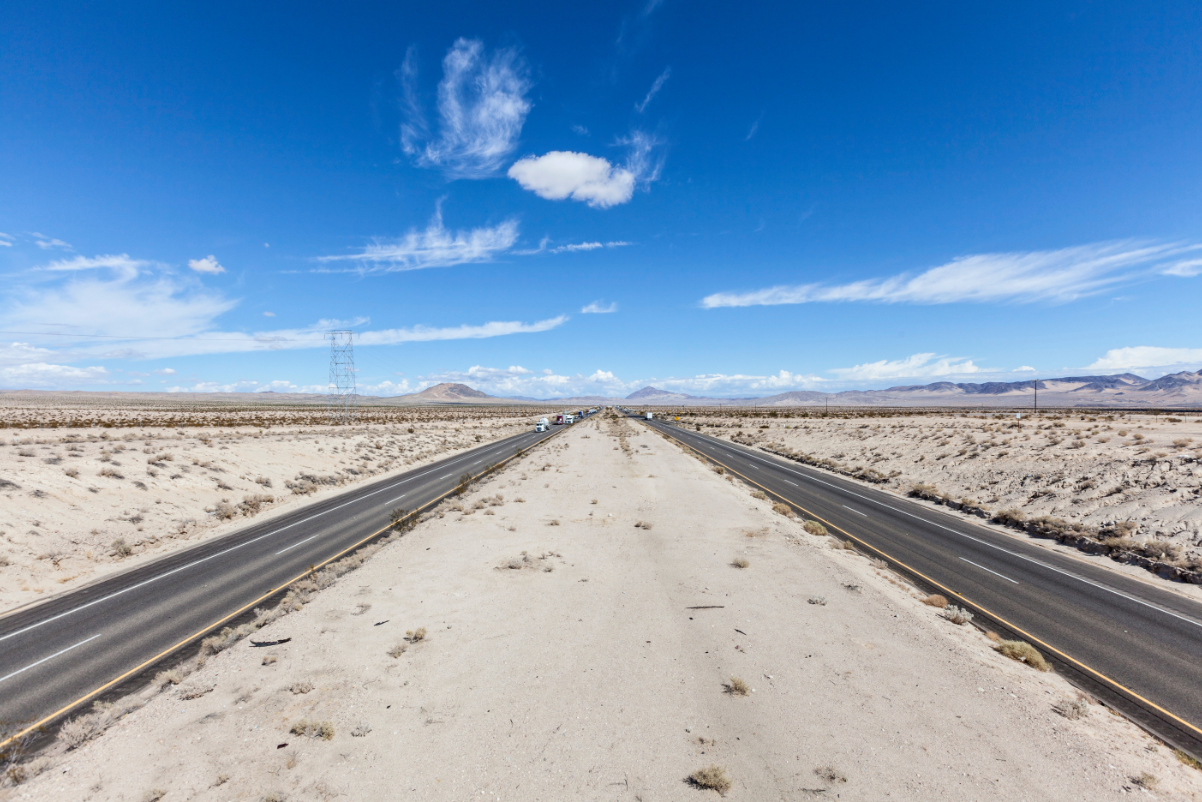MGM CEO: U.S. Needs to Fix Roads, Not Just Airports, to Boost Tourism

Skift Take
The U.S. has kick-started a multi-year infrastructure boom, but too much of it is focused on airports, reckons Bill Hornbuckle, CEO and President of MGM Resorts International.
"It's important that we think about roads, highways, and other ground transportation infrastructure," Hornbuckle said. "Look, there are plenty of challenges with aviation. We all understand. But ground transportation is more important than air in most jurisdictions and destinations and for a broader number of travelers."
Hornbuckle was partly talking out of self-interest in an interview with Skift. MGM's dozen properties along the Strip would benefit if roadways like Interstate-15 into Las Vegas improved. Yet Hornbuckle also made a bigger picture point that affects tourism nationwide, and he spoke as chairman of the U.S. Department of Commerce's Travel and Tourism Advisory Board.
Hornbuckle cautioned that he's not asking for more spending. He said he instead wants ground transportation to claim its fair share of already approved budget money. He said upwards of $110 billion out of about $550 billion in federal money for infrastructure could be tapped in ways that ultimately benefit tourism.
Before the pandemic, a U.S. Transportation Department commission pinpointed about 100 roads, railways, and bridges needing improvement to support tourism nationwide — with about 15 deemed essential.
Hornbuckle cited one example in Massachusetts: the Sagamore and Bourne bridges that connect Cape Cod with the rest of Massachusetts. These 90-year-old bridges need repair, he said. If they fail, tourism may dry up in much of the Cape.
Hornbuckle believes the country is taking the slow road to highway rehabilitation primarily because of process issues, not money. He cited the example of the aging Interstate 73, which was supposed to connect Michigan to Myrtle Beach. Money has been earmarked for decades but work on it has never started, he said.
"It's about focus and prioritization," Hornbuckle said, claiming that agencies and stakeholders aren't coordinating.
"I went to the secretary of transportation trying to get them to reconvene the committee," Hornbuckle said. "They've agreed to open the topic back up. So I want to push my industry colleagues to contact the Department of Transportation to advocate for relevant projects."
In December, the U.S. finally got a secretary-level position for tourism. Yet Congress hasn't funded the position, preventing the appointment of the first Assistant Secretary of Travel and Tourism at the U.S. Department of Commerce.
"We've got to get some funding and get a body in there," Hornbuckle said. "The undersecretary could appoint a designee to address the subject of tourism as it overlaps between Commerce and Transportation. To the extent we can get those two agencies communicating with each other in a real way — versus people like us from the outside trying to thread conversations — it'd be very meaningful."
Hornbuckle's comments echo similar ones made by Chris Nassetta, CEO of Hilton and national chair of the U.S. Travel Association, earlier this year.
That said, the project dearest to Hornbuckle's heart is the one affecting Vegas, near his MGM hotels and casinos. Interstate 15 is the route about 10 million travelers take every year from Southern California to visit Las Vegas. Congestion often pushes a 3½-hour-trip into a longer stretch. Drivers during the recent late-May Memorial Day holiday faced a 12-mile backup, reported the Las Vegas Review-Journal.
"Las Vegas is a pretty good representation of most travel destinations in that about half of our visitation comes via automobiles," Hornbuckle said.
During the May Memorial Day weekend, three times as many Americans traveled by car on trips longer than two hours than flew, according to AAA (American Automobile Association) estimates.
"We all understand what happened to Southwest [Airlines] over the last year because of the country's aging infrastructure, for instance," Hornbuckle said. "But most people travel other ways. Our sector needs to speak up and get decision-makers focused."





